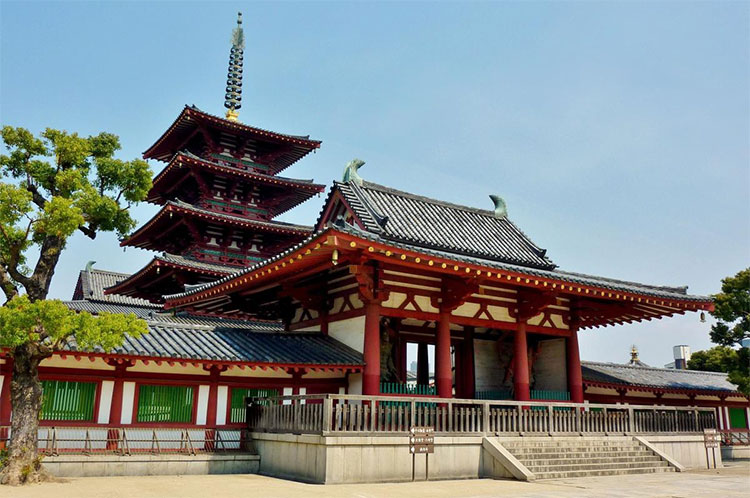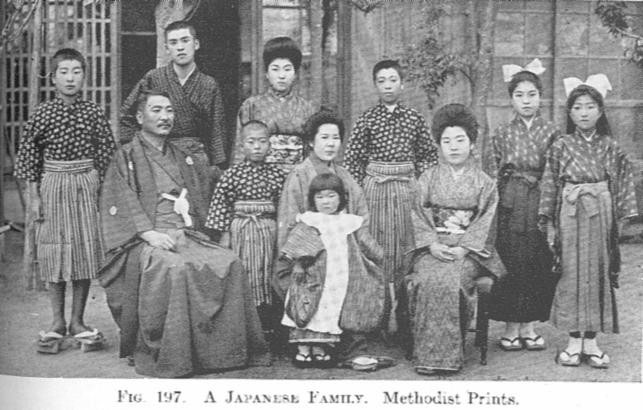The Japanese owned the world's oldest company, operating for more than 14 centuries
Not just a company! There are many businesses that are thousands of years old that still exist in the land of the rising sun, which is less well known.
Japan is a developed country both in science and economy. But it is unclear why, when looking at this country, people feel more nostalgic.
Because their population is getting older? Or is it a culture that values the old values? No one is sure! Just know that if now ask where the oldest company is located in the history of humanity, the main answer is in the land of the Rising Sun as the Kongō Gumi .
The oldest company in the world: existed since the 6th century, operating over 1400 years
Kongō Gumi is a Japanese private construction company, currently holding the title of the longest-lived company in human history.

Kongō Gumi's staff.
The company was founded in 578 in Osaka, and has been operating since then until it was acquired by Takamatsu in 2006. That means, Kongō Gumi's operating time as a private company is up. up to 1428 years.
The founder of this company - paradoxically - is not Japanese. Crown Prince Shōtoku then invited a group of engineers to build people from Baekje (Korean nowadays) to build the Shitennō-ji temple - the first and oldest temple in Japan. However, one of these groups decided to establish their own business, and since then the Kongō Gumi was born.

Shitennō-ji Temple - the first temple in Japan.
For centuries later, Kongō Gumi "bid" to build many works. Even the ancient castle of Osaka after 1000 years was taken by Kongō Gumi.
Prior to the time of acquisition by giant construction company Takamatsu, the company still owns 100 employees, with sales up to 7.5 billion yen per year. But in the end, the financial and liquidity problems caused Takamatsu to devour this rich company.
From December 2006, Kongō Gumi acted as a subsidiary of Takamatsu.
And Japan has not only one of the oldest companies in the world
You know, the oldest hotel still in operation does not belong to any European country, but it is still Japan. It is Nisiyama Onsen Keiunkan, a hotel - a hot spring in Yamanashi, founded in 705.
The second old hotel also belongs to Japan - another hotel - another hot spring named Hoshi Ryuokan, founded in 718.

Inside Nisiyama Onsen Keiunkan - the oldest hotel in Japan and the world.
And not only are these two oldest hotels. In fact, Japan is also home to many ancient businesses. As Sudo Honke - the oldest sake brewing company - founded in 1141; Yamanashi Prefecture - the company that produces supplies for monks, founded in 1024; Ichimojiya Wasuke - Japan's oldest confectionery company, founded in 1000 .
How can they survive for thousands of years?
Perhaps not surprisingly, a country with an economy has a long history of owning such companies.Most are family companies . Kongō Gumi himself was also a family company, with an inherited genealogy lasting 3 meters (and that was stopped in the 17th century).
However, the puzzling thing here is how these companies can survive for thousands of years - a very . irrational number compared to most other businesses in the world?
According to David Weinstein - Japanese economics professor at Columbia University (USA), the main reason is because these are family companies. It is important to know that Japanese people maintain a culture called "pre-eminent" - the eldest son will inherit all the family's assets. Meaning, the entire company will be transferred to a single person, so there will be no sharing of seven.

Japanese family companies are passed on to a single heir.
Even by the 20th century, when the " primordial " culture had gradually disappeared, the companies and private enterprises themselves still tend to pass on everything to an heir.
But not only that. The problem is that the heir may be adopted, or someone who is confident enough to maintain the family's career and is not required to be a child in the house. According to some studies, companies inherited by "foreign" people often operate much more efficiently, and thus they can stand firm for thousands of years.
Moreover, when there is an appearance of outsiders, businesses can even evolve in a good way. One of the most successful examples of this culture is Nintendo - starting with a post production company, then restructuring to become one of the icons of video game products on a global scale.

Nintendo used to be a family company, and you know what they can do right?
There were also Sumitomo and Mitsui - both of them had "ages" for centuries. They combined to create SMBC - Japan's second largest multinational bank.
- The oldest man in the world died, aged 112 years
- The oldest Vietnamese woman in the world has just died
- 14 oldest ancient artifacts in the world
- The aquatic monster looks at the earthquake and the Japanese for more than two centuries
- The oldest turtle in the world died
- The 114-year-old woman is the oldest woman in the world
- 10 oldest antiquities in the world
- The meteorite mining company was born
- Discovering evidence of Earth's oldest life
- The oldest man in the world died
- Find the oldest Maya calendar
- The world's oldest condom
 'Fine laughs' - Scary and painful torture in ancient times
'Fine laughs' - Scary and painful torture in ancient times The sequence of numbers 142857 of the Egyptian pyramids is known as the strangest number in the world - Why?
The sequence of numbers 142857 of the Egyptian pyramids is known as the strangest number in the world - Why? History of the iron
History of the iron What is alum?
What is alum?